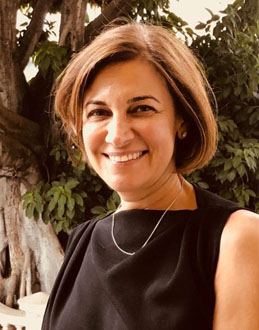Magali Vercesi, Secretary General of the Financial Activities Control Commissions, has a complete picture of the financial centre and its evolution, not only locally but also within an international market currently challenged by crypto currencies.
In recent years in Monaco, we have seen a rise in the number of management companies, family offices (FO) and, over the last year, multi family offices( MFO). What role does the regulator play?
MFOs that do not provide financial advice - which are developing in Monaco at present - and FOs are outside authorisation under financial activities Law 1318. So the regulator plays no role.
At the beginning of 2017, there were 31 banks in the financial centre and 58 management companies. The latter are numerous, and applications for authorisation are also relevant to them. Around 50% of applications are approved.
There are six authorisation commission sessions a year. The Commission is very attentive to the quality of submitted projects. We check the director’s experience, the financial soundness of their project, and the proposed management products (which need to be innovative for the financial centre). Finally, the future management company must be able to itemise its activity, its business plan, the resources devoted to it, and what type of customer makes up its target group. We hope that the new entries can offer Monegasque customers new investment opportunities of course, but also that they are able to benefit Monaco by bringing outside customers.
Brexit could lead some management companies to set up here, and further speed this up.
In Monaco, what is the regulator’s position on crypto currency and ICO (Initial Coin Offerings) ?
As far as crypto currency is concerned, in my view we are reaching the limits of this system initially created to avoid any regulation.
Crypto currency is reaching an increasingly wide community, and the consequence of that will be the need for guarantees and security. A new financial area is developing – it is young and not yet mature. Will it be able to evolve, at cruising speed, without a regulator? That seems unlikely. And the regulator is wondering how to position itself.
ICOs experienced significant growth in 2017. Companies are using fundraising to develop future projects. The issue of digital assets that can be exchanged for crypto currency during the start-up phase of a project is being increasingly used.
If the success rate of this fundraising is high, and promises fulfilled, the regulator will probably need to take a position.
Regulating means introducing texts and laws. As long as the needs are not stabilised, it is difficult to regulate. The real question is, when will the market reach maturity?
What are the financial centres’ positions on that?
Hong Kong has no regulation, but best practices to comply with. Japan accepts crypto currency payments. Closer to home, Switzerland is trying to put in place regulation driven by the policy of quotas. But there are many topics: what is the legal status of the TOKEN? How can we handle these crypto currencies in tax terms?
TOKENS can be bought and sold on exchange platforms at a rate dependent on supply and demand. They are therefore liquid; will banks agree to receive funds from these exchange platforms? And how?
Finally, this is coupled with the anti-money laundering regulations. Do these platforms have KYC (Know Your Customer) procedures of a high enough level for banks to accept their funds? Some banks are thinking of including TOKENS in their customers’ securities portfolios. 2018 will be a pivotal year for seeing how this evolves.
In conclusion…
Good timing is paramount. Regulation is necessary, but not at the expense of interesting, innovative projects.






